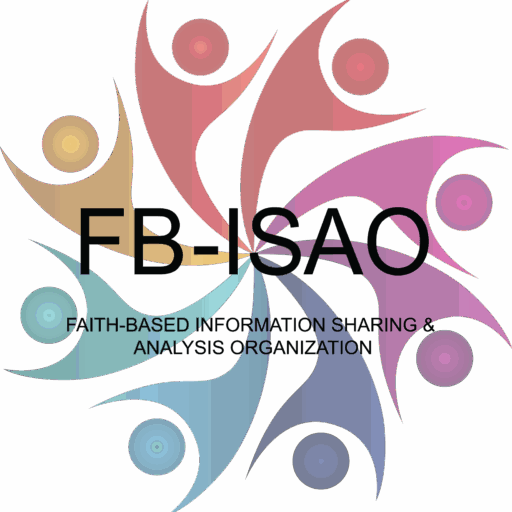The Faith-Based Information Sharing and Analysis Organization (FB-ISAO) continually stresses the need for members and members organizations to be active and to engage their respective communities in order to help reduce risk while enhancing preparedness, security, and resilience. It takes a village!

The traditional types of threats that Faith-Based Organizations (FBOs) contend with are ever-present and those include being potential targets for violent extremists and hate-based groups. However, local threats may tell a different story or highlight different threats. There may be a criminal element, or an illicit drug culture in the neighborhood that goes beyond usual threats that FBOs may encounter. Recently, FBOs have been subjects of fall-out activity due to political and social protests.
To become more resilient, FBOs could partner with other organizations and / or local agencies to enhance communications, coordination and training opportunities leading to improved security protocols, increased awareness of suspicious activity indicators, and ultimately perhaps improving the ability to prevent, detect, deter, and disrupt potential plots. This includes partnering with local law enforcement and Fusion Centers who may be able to provide valuable threat information and be a source to review and assess security plans.
FBOs are encouraged to reach out to those within their community in order to build partnerships. This can be done in a number of ways for a number of benefits. As much as houses of worship should be engaged to learn about the latest trends and patterns within the community, it is also important to share activities with local law enforcement, first responders and neighbors. One way is to reach out to neighbors, businesses and organizations to introduce yourself and the FBOs you represent. For some FBOs this may be easier than others, especially if an FBO may be in a new development or in rural areas, but neighbors are not just those on either side of the building, they can be in the larger community. Whether or not a house of worship has a dedicated security staff, or if security falls on one-person, getting involved in the community can help one understand the security issues trending within the community, identify how other organizations have addressed these issues, and be security mindful. Through the act of practicing security mindfulness, security teams can assess their situation not only in relation to known threats, but also from potential threats that may exist due to the organization’s activities (or perceived activities/positions).
Part of building strong and trusting relationships in the community can start from within. An FBO’s own membership could already include first responders or other security professionals who can be or who can serve as initial points of contact to create or strengthen community relationships.

As noted in a recent First Responders Toolbox, “First responders can inform faith leaders on topics related to violent extremism and connect them to resources and tools that are available to include sharing information on the current threat environment; violent extremist groups and ideologies; common violent extremist tactics, techniques, and procedures; the process of radicalization; and mobilization indicators. FBOs can consider joint training activities to promote a common understanding of the indicators of radicalization or mobilization to violence. Since FBOs can be in a good position to identify early risk factors that may make an individual more susceptible and to intervene with that person before violence occurs.
It really does take a village! FB-ISAO will bring together faith-leaders, members of security and safety teams, local law enforcement partners, team members from the Active Assailant Security Branch at CISA, Protective Security Advisors and team members from participating Fusion Centers, to participate in Hostile Event Preparedness Workshops in the National Capital Region. Those workshops will take place on 27 October and 17 November. Learn more about the FB-ISAO Hostile Event Preparedness Workshops. See the information below to register for the workshops.
- Non-members of FB-ISAO: To register for the Workshops, please complete required registration forms for the date you wish to attend:
- Members of FB-ISAO: Please use this form to register for the Workshops.
During the workshops, we expect that the community will be able to start those community relationships or to deepen any existing relationships. And going forward, the community will be able to continue their engagement by way of FB-ISAO’s Information Sharing Communities. Building community resiliency is an on-going activity – a continuum. Information Sharing Communities is just one of the capabilities that FB-ISAO provides to its members so that they can begin or continue their journey towards community partnerships.
Reduce the threat.
Protect the free practice of faith.


